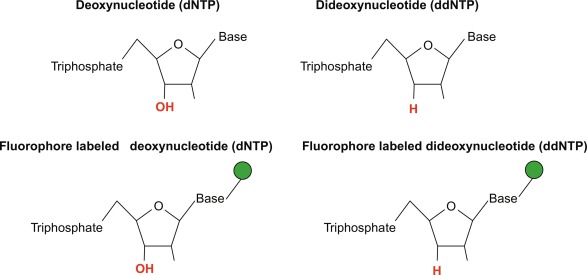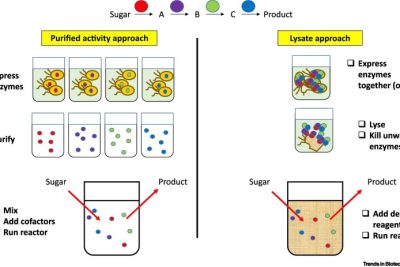
What are deoxynucleoside triphosphates and their functions

Deoxynucleoside triphosphates (dNTPs) are essential building blocks of deoxyribonucleic acid (DNA), integral to the process of DNA synthesis and repair. These deoxynucleoside triphosphates not only supply the necessary components for growing DNA strands but also play a critical role in maintaining the integrity of genetic information. Understanding the structure, functions, and implications of dNTPs is crucial for comprehending both molecular biology and biotechnological applications.
In the cellular environment, deoxynucleoside triphosphates are vital for a multitude of processes beyond just DNA replication. They contribute to cell division, DNA repair mechanisms, and cellular metabolism. As we delve into the various aspects of dNTPs, their significance in the realm of genetics and cellular functions will become clear, emphasizing their importance in both natural and engineered biological systems.
- Structure of Deoxynucleoside Triphosphates
- Roles of Deoxynucleoside Triphosphates in DNA Synthesis
- Deoxynucleoside Triphosphates and Their Importance in Cellular Functions
- Deoxynucleoside Triphosphates in Genetic Information Transfer
- Implications of Deoxynucleoside Triphosphates in Biotechnology
- Conclusion
Structure of Deoxynucleoside Triphosphates
The structure of deoxynucleoside triphosphates is unique and sophisticated, consisting of three main components: a nitrogenous base, a deoxyribose sugar, and a triphosphate group. The nitrogenous bases found in dNTPs are adenine (A), guanine (G), cytosine (C), and thymine (T). Each base is attached to a five-carbon sugar, specifically deoxyribose, which distinguishes dNTPs from ribonucleoside triphosphates (rNTPs), which contain ribose. The presence of the hydroxyl (-OH) group at the 2’ carbon in ribose modifies the stability and function of RNA compared to DNA.
Components of Deoxynucleoside Triphosphates
- Nitrogenous Base: The four types of nucleotides are defined by their nitrogen bases—adenine, guanine, cytosine, and thymine. Each base pairs uniquely with its complement during DNA synthesis, which is essential for the fidelity of genetic information.
- Deoxyribose Sugar: A five-carbon sugar, deoxyribose lacks an oxygen atom at the 2’ position, contributing to the stability of the DNA structure across various conditions.
- Triphosphate Group: The three phosphate groups linked to the deoxyribose offer energy-rich bonds that facilitate the polymerization process during DNA replication, as their hydrolysis releases energy that drives synthetic reactions.
Roles of Deoxynucleoside Triphosphates in DNA Synthesis
The primary role of deoxynucleoside triphosphates is in DNA synthesis during cellular replication. During this process, dNTPs serve as substrates for DNA polymerases, the enzymes responsible for assembling DNA strands. When a dNTP is incorporated into a growing DNA chain, the terminal phosphate of the triphosphate group is cleaved off, releasing energy and forming a phosphodiester bond with the existing nucleotide.
This addition not only extends the DNA strand but also ensures that the genetic information is faithfully copied from one generation to the next. Moreover, the balance of different types of dNTPs within the cell is critical to maintaining genomic stability, as any imbalance can lead to mutations or errors in replication.
Deoxynucleoside Triphosphates and Their Importance in Cellular Functions
Beyond their role in DNA synthesis, deoxynucleoside triphosphates are involved in other cellular functions. They are crucial in the repair mechanisms of DNA, participating in various pathways that rectify DNA damage resulting from environmental factors or normal metabolic activities. Nucleotides, including dNTPs, are also fundamental in the regulation of cellular metabolism and energy transfer. Their triphosphate nature enables them to function as high-energy molecules, akin to adenosine triphosphate (ATP), which is the primary energy currency of the cell.
Furthermore, dNTPs are essential in signaling pathways, where they can influence cellular responses to external stimuli. Their versatility and involvement in multiple metabolic processes highlight their fundamental importance beyond mere DNA construction.
Deoxynucleoside Triphosphates in Genetic Information Transfer
The process of genetic information transfer relies heavily on deoxynucleoside triphosphates. DNA replication, transcription, and overall genomic stability depend on the effective usage of dNTPs. During transcription, RNA polymerase uses rNTPs, but the initial formation of mRNA involves accurate pairing and utilization of DNA sequences, which are inherently tied to dNTP dynamics.
The transfer of genetic information from DNA to RNA, and from RNA to protein, depends intricately on the functions of nucleotides. Errors in the usage of dNTPs during DNA synthesis can lead to mutations, impacting the flow of genetic information and potentially leading to various diseases, including cancers and hereditary disorders.
Implications of Deoxynucleoside Triphosphates in Biotechnology
The practical applications and implications of deoxynucleoside triphosphates in biotechnology are vast. dNTPs are not only utilized in basic research but are also pivotal in advanced biotechnological techniques like polymerase chain reaction (PCR), which allows for the amplification of specific DNA sequences. This technique hinges on the availability of dNTPs, highlighting their importance in both research and clinical diagnostics.
Moreover, dNTPs are essential in sequencing technologies and the development of gene therapies, enabling scientists to edit genetic material with precision. As biotechnology continues to advance, understanding the role and functioning of dNTPs becomes increasingly crucial for innovations in genetic engineering, synthetic biology, and therapeutic developments.
Conclusion
deoxynucleoside triphosphates are indispensable components of cellular biology, playing vital roles in DNA synthesis, repair, and genetic information transfer. Their structure and components contribute to their functionality, impacting various cellular processes. Furthermore, the implications of dNTPs extend into biotechnology, making them a subject of interest in research and applied sciences. Understanding dNTPs is essential in the realms of genetics and biotechnology, where their influence can lead to groundbreaking discoveries and advancements.
The critical nature of deoxynucleoside triphosphates cannot be overstated, as they are fundamental to the very essence of life at the molecular level. As research progresses, the knowledge surrounding these vital molecules will only expand, shedding light on new potential applications and a deeper understanding of cellular and genetic mechanisms.
Did you find this article helpful? What are deoxynucleoside triphosphates and their functions See more here Education.
Leave a Reply






Related posts